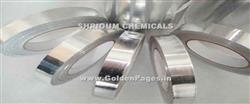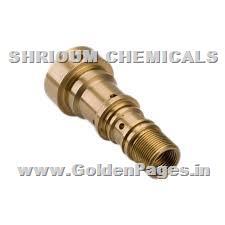SHRIOUM CHEMICALS
Featured Products
Highest quality standards are achieved through the implementations of latest technology, decades of experience and everlasting moral values , which have helped us to retain our customers as well as multiply them.
Welcome to SHRIOUM CHEMICALS
Titanium Passivation

A possible limiting factor of titanium alloy application in aqueous chlorides can be crevice corrosion in metal to metal joints, gasket to metal interfaces or under process stream deposits. Given these potential crevices in hot chloride containing media, localized corrosion of unalloyed titanium and other alloys may occur depending on pH and temperature .
Though ‘Titanium” is immune to corrosive attack by salt water or marine atmospheres. It also exhibits exceptional resistance to a broad range of acids, alkalis, natural waters and industrial chemicals. in certain condition Metal get attacked. Biometrically non acceptable .
Chemical Passivation according to active standard ASTM F86-01standard practice. For Forgings for Surgical Implants. ... The pH of the solution was adjusted to 7.4±0.1 and the temperature during the test was maintained at 37±0.2ºC.
Titanium is "passive" so a separate treatment is not called out, however, it is for the medical industry and usually ASTM B600-91 is cited for cleaning and descaling of titanium. It is referenced in ASTMF86 which describes practice for prepping "metallic surgical implants." for corrosion cleaning and descaling procedure useful to producers, users, and fabricators of titanium and titanium alloys for the removal of ordinary shop soils, oxides, and scales resulting from heat treatment operations and foreign substances present as surface contaminants.
Passivation treatments provide a controlled and uniformly oxidized surface state. The Passivation leads to a dense and stable oxide film and improves corrosion resistance (decreases ion release). The Passivation procedure involves nitric acid eliminating metallic contaminants from the surface. It has however practically no influence on the overall surface topography of Titanium surface. The resulting layer of this chemical treatment is a TiO 2 film in a thickness of two to six nanometers.
Our Vision
* To embrace new technologies and methods. * To give unsurpassed products and services to the clients. * To constantly look for improvement and changes.









